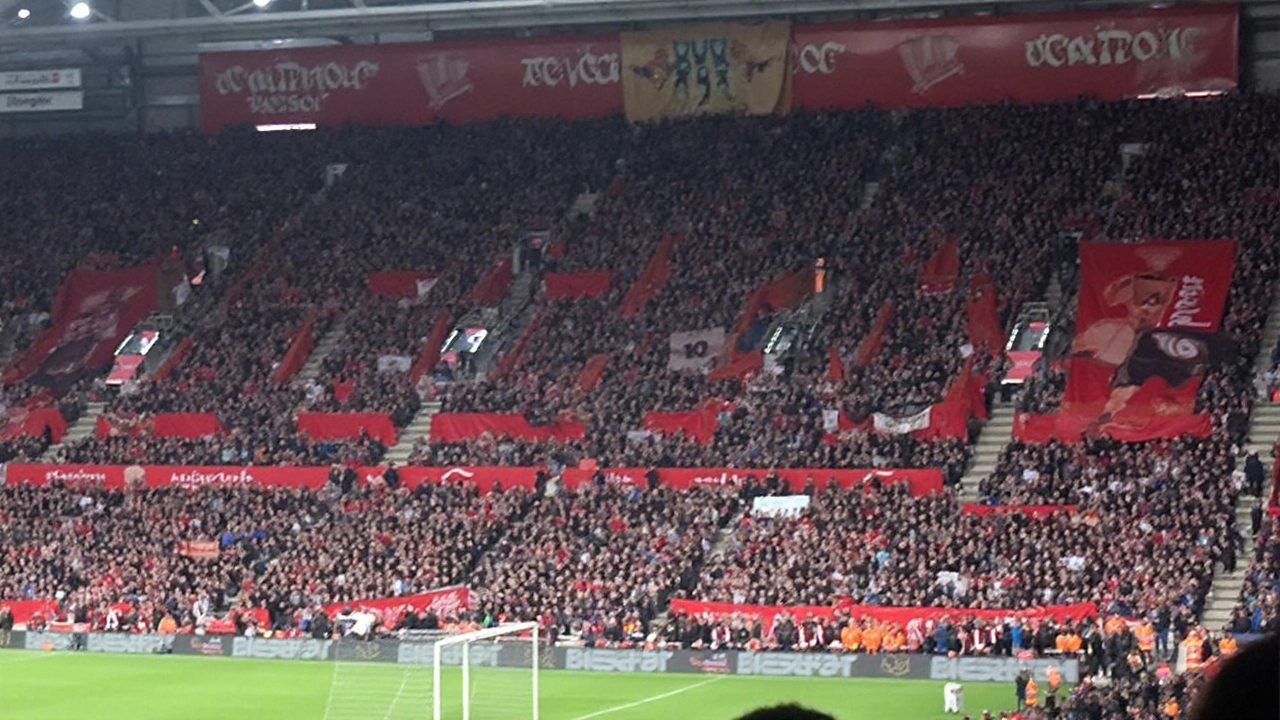
A sell-out derby, a tight deadline, and a final route to a seat
The south coast’s biggest grudge match sold out before most people even settled into match week. Southampton’s home clash with Portsmouth at St Mary’s Stadium on Sunday, September 14, 2025, hit maximum capacity days out, forcing late hopefuls to pin their chances on one thing: the club’s Ticket Exchange. That window closed at 9am on match day, ending all official access to seats for the noon kickoff.
Here’s what actually happened. Regular tickets were gone, and the club opened up the Ticket Exchange so season ticket holders who couldn’t make it could put their seats back into the system. Buyers could then pick up those seats at approved prices through official channels. It’s the only legitimate way to find a spare for games like this without drifting into risky resales.
Demand was off the charts. This is the first league meeting between the clubs in years, and the rivalry doesn’t need much marketing. St Mary’s holds just over 32,000, which feels big most weeks but suddenly looks small when two Hampshire fanbases circle the same date. Southampton warned supporters to stay away if they didn’t have a valid ticket issued by the club. No paper trail, no entry. Simple as that.
The deadline mattered because the club needed time to lock down the manifest, share final data with safety teams, and make sure turnstiles, stewarding, and segregation plans matched reality. Early kickoffs like this 12:00 start are common for higher-risk fixtures. They cut down on pre-match trouble spots and help police and stadium teams manage crowds with tighter control.
As the 9am cut-off hit, the picture became clear: no more official tickets were available in any form. If you weren’t in by then, you weren’t getting in. That suits the club for a reason. Ticket exchanges reduce empty seats, reward season ticket holders who share theirs, and shut out touts looking to flip tickets at inflated prices outside the ground or on unregulated platforms.
Why this derby sent demand through the roof—and how the exchange tries to keep it fair
Call it what it is: scarcity. These two simply haven’t met often in recent seasons, and when they do, neutral tickets vanish and home seats are snapped up by members and season ticket holders fast. Add Portsmouth’s return to league duty against their rivals, and you’ve got a perfect storm. The emotional weight is real, and both sets of fans know exactly what it means to be inside the ground when the whistle goes.
That’s why the club leaned heavily on the Ticket Exchange. It’s designed to do three things well: keep legitimate tickets in the system, keep pricing controlled, and keep seat data accurate for safety. Season ticket holders list a seat; if it’s bought, the original barcode is voided and the new one is issued to the buyer. If it isn’t bought by the deadline, the original seat stays with the holder. No loose ends, no duplicated entries.
Face-value resales—or pricing set by the club within a allowed band—also blunt the scalper market. When fans know there’s a trusted, official route, they’re less likely to roll the dice on shady offers online. And when the club can track every ticket, it can enforce bans on misuse, block suspicious activity, and protect families and disabled supporters in areas that need tighter control.
Match operations sit behind all of this. A sold-out St Mary’s means full segregation plans, focused stewarding, careful turnstile timings, and contingency for late arrivals. It also means the club can plan services around known numbers: catering loads, staffing, transport coordination—the nuts and bolts that become headlines only when they go wrong. The exchange gives operations teams a clean, final number by mid-morning.
The rivalry brings its own edge. Early kickoffs reduce the window for disorder and help police deploy where they’re needed most. Club messaging stays consistent: if you don’t have a valid ticket, do not travel. Turning up without one just adds to congestion and frustration, and it won’t get you through the gates.
For fans who missed out, the message is boring but right: stick to official channels next time. Join membership schemes early, watch on-sale calendars, and use the Ticket Exchange when it opens rather than waiting until the final hour. Big derby matches are not normal fixtures. They move faster, and they don’t come around often enough to bank on a late miracle.
Here’s the key info the club pushed as the deadline approached:
- Only tickets bought through official systems, including the Ticket Exchange, are valid at the turnstiles.
- Barcodes are unique. If a seat has been resold through the exchange, the old code is cancelled automatically.
- Unregulated resales risk refusal at the gate and possible club sanctions.
- Entry and bag policies are enforced more strictly at high-demand, high-risk matches; plan for extra time at security.
- Expect visible segregation and a heavier stewarding presence than a standard league game.
Nothing about this was subtle. The minute the fixture list dropped, this game was circled. The sell-out confirmed the obvious: both clubs carry massive pull when they share a pitch. For Southampton, it’s about filling every seat with a legitimate supporter and managing the pressure that comes with it. For Portsmouth, it’s a statement of return, a reminder that this part of the country still breathes football like few others.
If you’re inside St Mary’s at noon, you’ll feel it. If you’re not, the club’s exchange did what it could until the clock ran out at 9am, and then the shutters came down. No drama, just a system doing its job—reshuffling seats, tightening the data, and keeping a sold-out derby as fair and safe as possible.
And that’s the real point of a Ticket Exchange on days like this. It isn’t a magic fix or a backdoor to the biggest games. It’s the last controlled valve on a fixture that becomes more than a match the second the calendar hits September. When the valve closes, that’s it. See you again when the return fixture rolls around—and expect the same frenzy all over again.
Southampton vs Portsmouth might read like four words on a list, but for one city and a patch of the south coast just up the road, it’s a date, a sound, and a feeling. That’s why the seats went. That’s why the exchange mattered. And that’s why, by 9am on Sunday, the only thing left to do was wait for kick-off.
